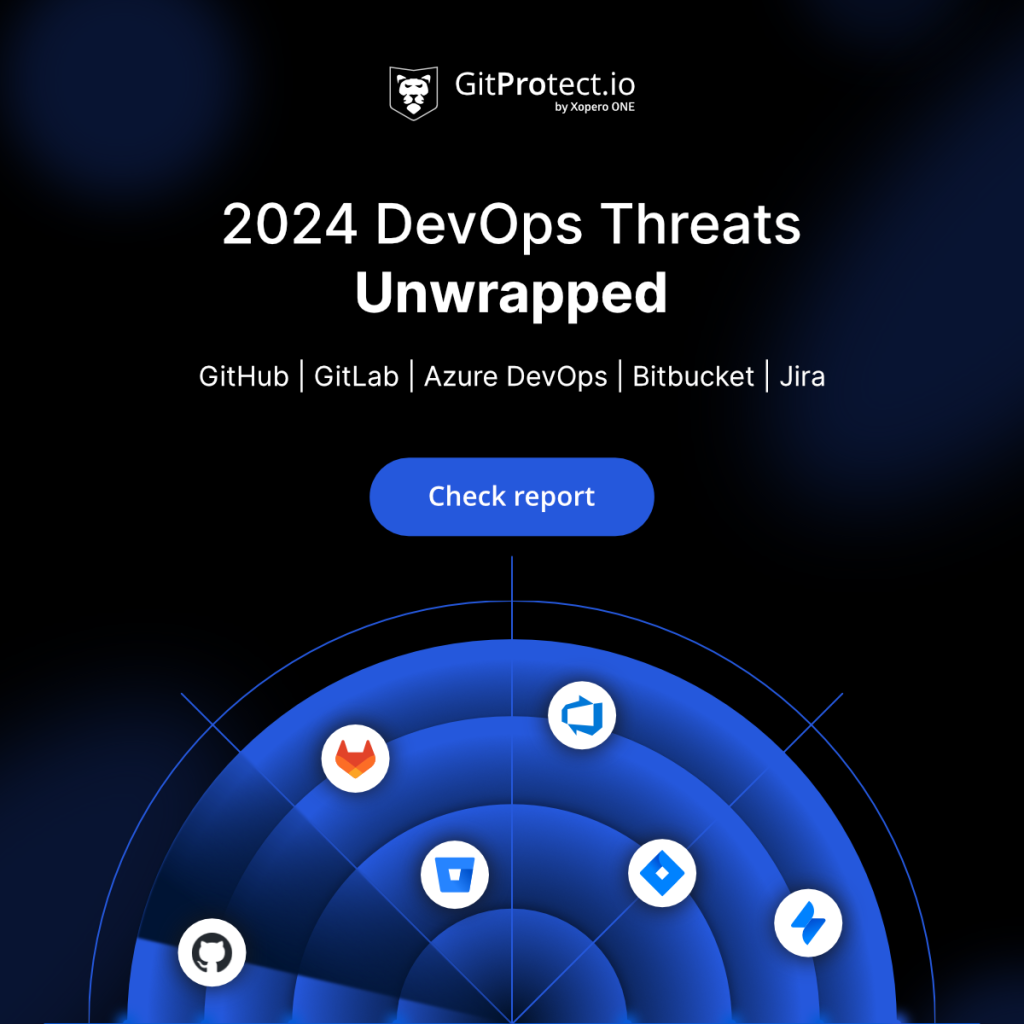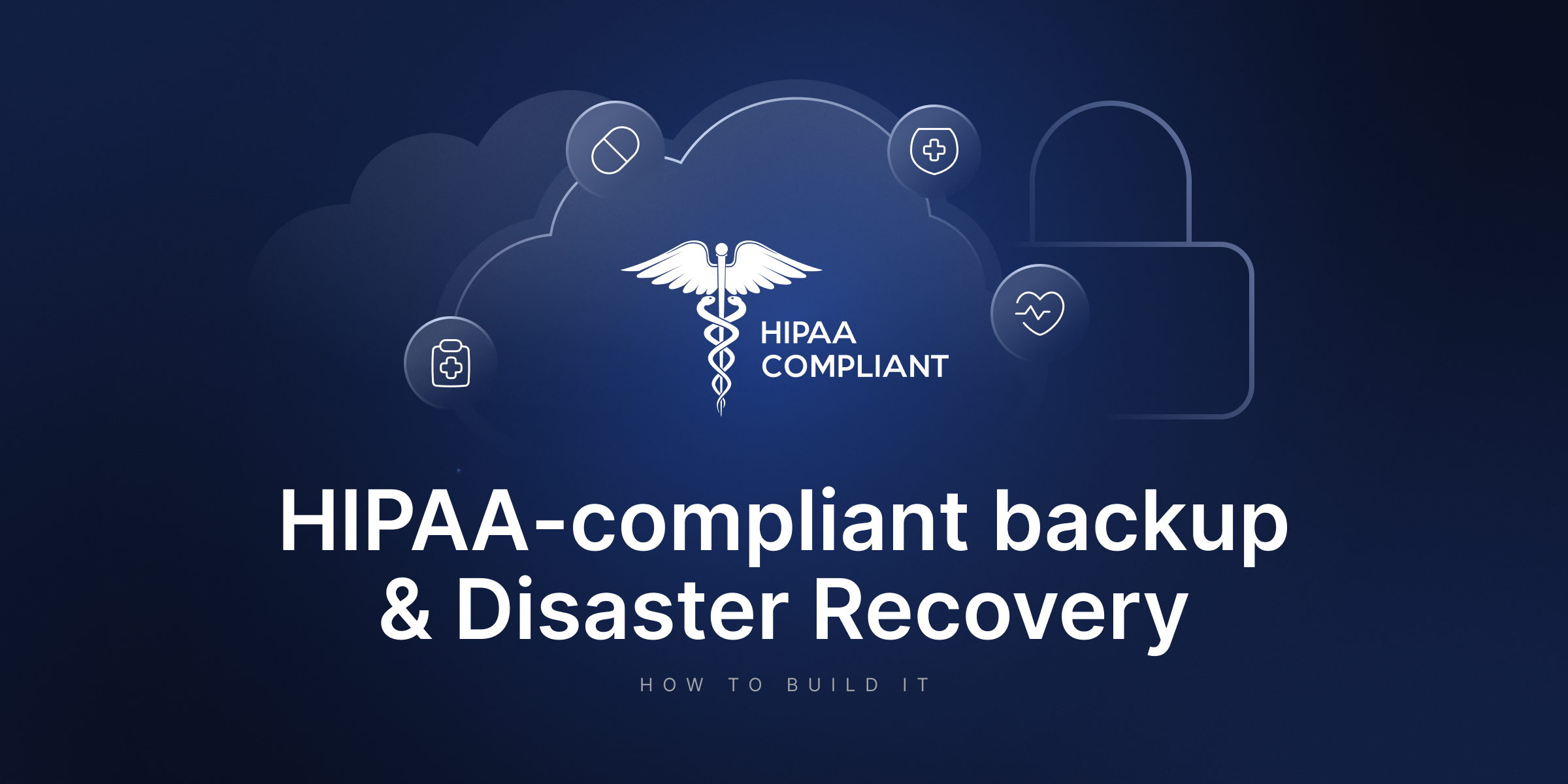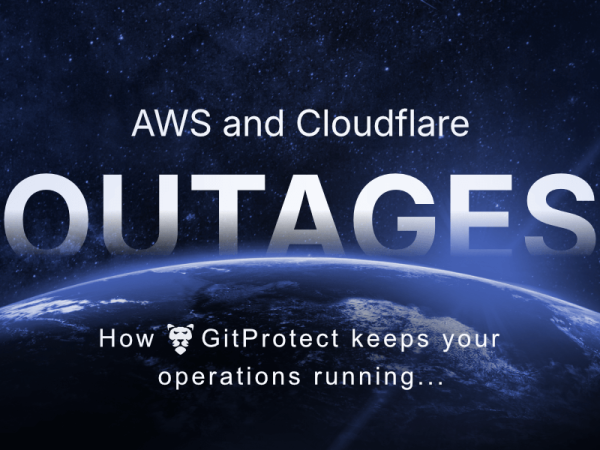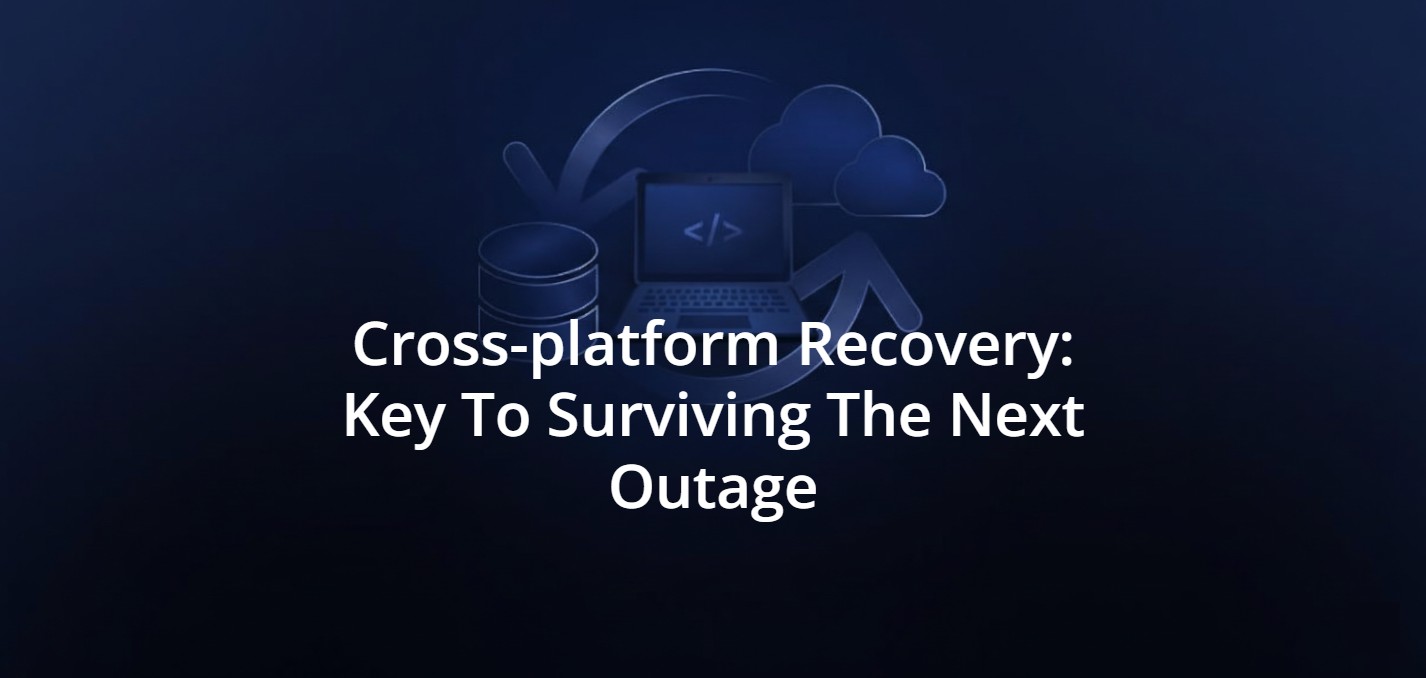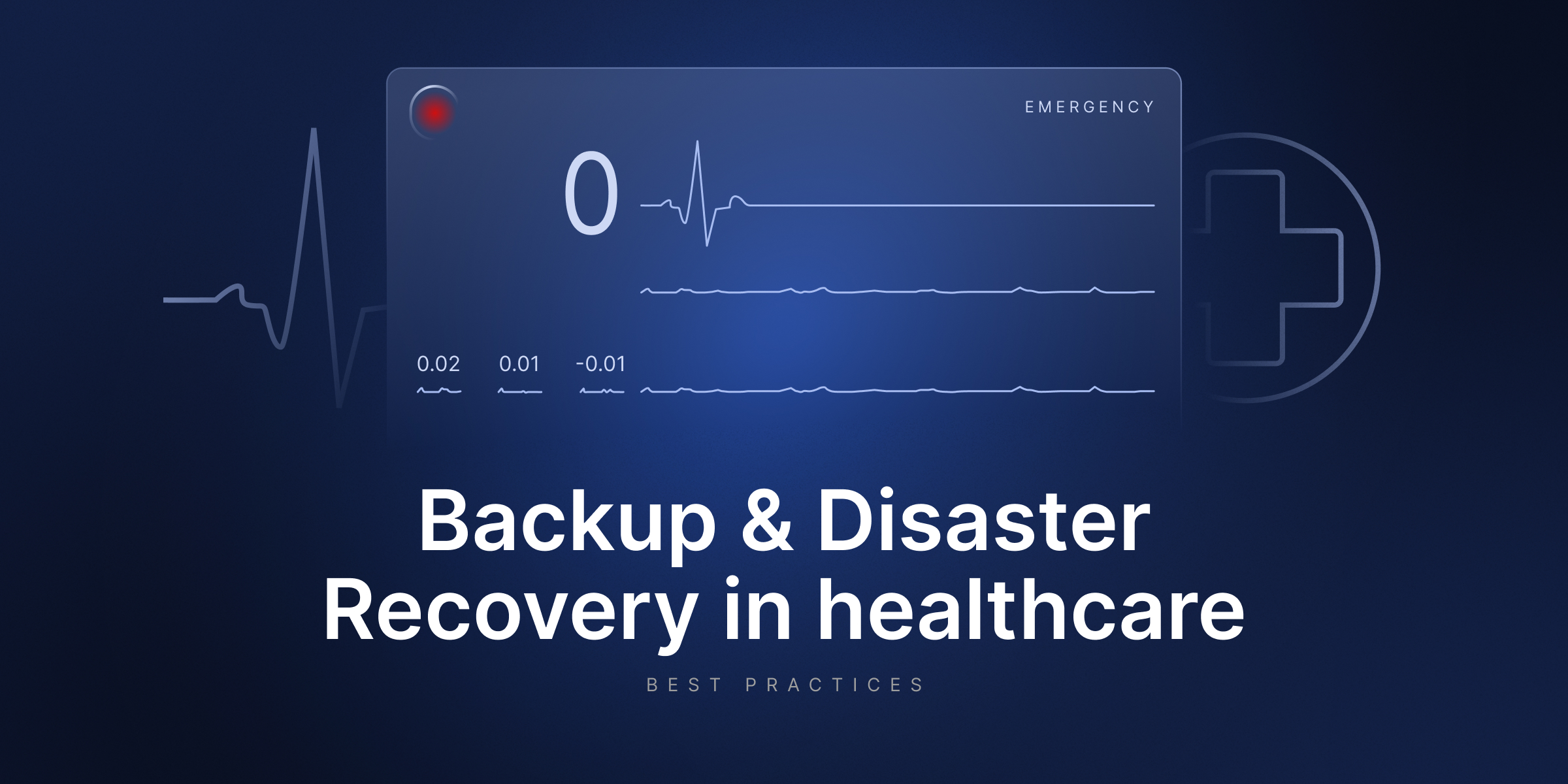
Why Healthcare Needs DevOps Backup And DR Strategy
There is a critical speed-control paradox in the healthcare DevOps landscape: while DevOps best practices dramatically cut software delivery cycles, a lack of confidence in Disaster Recovery readiness, noted by Gartner, opens up room for fragile operations despite increased deployment speed. This gap demands a solution that adds reliability, such as comprehensive backup strategies, to ensure that faster development doesn’t compromise mission-critical systems ignited through DevOps platforms.
Powerful medical software development is where every system update runs smoothly, every team works in perfect sync, and all data is protected, including data residing in DevOps repositories. No matter what tools you’re using — Bitbucket, Azure DevOps, GitHub, GitLab, or Jira — code and collaboration need near-instant restoration.
For teams that depend on these platforms, the findings of the mid-year 2025 DevOps Threats report raise a critical question: how can you build resilience when the pipelines are unstable? Azure DevOps, GitLab, GitHub — you name it — all go through downtime and degraded performance. In H1 2025, GitLab patched 65 vulnerabilities, faced 59 incidents with 1,300+ hours of service disruption. Jira reported over 2,390 hours of cumulative downtime and multiple ransomware attacks due to stolen access credentials.
“Globally, healthcare provider organizations incur the highest cost for data breaches of any industry, averaging $9.8 million per incident — more than 1.5 times the financial-services industry’s $6.1 million, according to IBM’s Cost of a data breach report 2024. Beyond financial losses, cyberattacks can also disrupt patient care. In 2023, 12 percent of surveyed healthcare organizations that had experienced a cyberattack by email reported an increase in mortality, up from 21 percent in 2022. Also, 71 percent reported poor patient outcomes because of delays in procedures and tests, compared with 60 percent the prior year.”
— Tech resilience for healthcare providers: Inaction has a heavy toll, McKinsey
With cyberthreats rising and high frequencies of outages — from ransomware to natural disasters — you can’t afford to leave your DevOps environments vulnerable. With code, workflows, and critical data those systems manage, the sooner you assess and strengthen them through backup, the better it is for your technology resilience.
DevOps in healthcare — how backup closes the risk loop
DevOps and healthcare are converging faster than ever, topping the pace with AI, automation, and cloud. 83% of healthcare organizations now use cloud-based core systems, making data and infrastructure increasingly volatile. DevOps pipelines must match this pace with resilience, however. To have every critical system update run smoothly, every team work in perfect sync, and data protection intact, DevOps platforms must be paired with smart backup.
Source code deserves the same protection as patient data
DevOps repositories are central to healthcare, serving as the only source for code and configurations. These should always be backed up to protect organizations against deletion or data corruption. From electronic health record integrations to medical device software to AI-driven diagnostics, your repositories hold the intellectual property and automation behind modern care. GitLab, GitHub, or Azure DevOps enable version control and collaboration, letting multiple developers safely update software and infrastructure. Such DevOps platforms feed CI/CD pipelines, ensuring automated testing, quality checks, and safe deployments with minimal downtime.
By storing infrastructure as code, healthcare organizations can version, review, and roll back server and network changes, supporting uptime and regulatory adherence. Every script, pipeline, and configuration on DevOps platforms drives systems that clinicians and patients depend on. A single missing line of code can disrupt your system’s logic and output.
Hospitals and health systems use DevOps to accelerate telehealth platform updates, streamline EHR interoperability, deploy analytics-based diagnostics, and integrate wearable and remote monitoring data. By combining automation, containerization, cloud platforms, and CI/CD pipelines, healthcare organizations scale, secure, and modernize IT operations.
But what can happen to them if they don’t have backup? In May 2024, Ascension Health became victim to a Back Basta ransomware attack, affecting healthcare systems in 142 hospitals and 5.6 million people. The electronic health record outage persisted for 4 weeks, resulting in a $1+ billion loss. This could have been reversed if they had created the latest backup of their systems’ code and patient records to relaunch the service.
DevOps, as well as SaaS, providers secure their services, but the security of your account data is your responsibility. Thus, backing up DevOps and SaaS platforms closes the security loop for your organization, giving IT teams the control to recover instantly from failures or attacks. You can store backups on another platform or your own device so that your hands are never tied if, or when, a disruption strikes.
Find out how each of the providers meets the shared Responsibility Model:
📌 GitHub Shared Responsibility Model
📌 Atlassian Cloud Security Shared Responsibility Model
📌 GitLab Shared Responsibility Model
📌 Microsoft Shared Responsibility Model in Azure DevOps
Data loss risks are real
Ransomware attacks, accidental deletions, or outages can wipe out your data in seconds. Without backup, teams lose months or even years of development work, leaving critical applications offline and vulnerable.
For instance, hospitals and healthcare facilities powered by Epic EHR suffered an outage for around 24 hours in July 2024. Care providers couldn’t manage patient data, medical histories, and clinic workflows to provide sufficient care. Multiple hospitals had to operate on paper, cancel non-emergency services, and dispatch ambulances to other hospitals. Thus, a resilient backup strategy should include real-time or near-real-time replication of critical systems. So, if your primary EHR or infrastructure goes down, an alternative environment is ready to go.
No matter how advanced GitHub, GitLab, Azure DevOps, or any other service provider is, they come with vulnerabilities and are not immune to human error. Sensitive healthcare data was exposed on public GitHub repositories from nine U.S. entities, including HIPAA-covered organizations and business associates. The data leak, affecting approximately 150,000 to 200,000 patient records, was caused by developers embedding hard-coded credentials in public repositories instead of private ones, or by software engineers failing to remove outdated repositories. The exposed credentials allowed access to systems such as Microsoft Office 365, Google G Suite, internal servers, and billing systems, exposing PHI, contracts, internal communications, and insurance records. And this is just one of the many examples of how data loss in healthcare came to the surface.
Compliance requirements set a high standard
Healthcare regulations demand proof of security and service continuity. Protecting your critical data with scheduled, immutable backups ensures you meet HIPAA, GDPR, and HITECH obligations while guaranteeing full recoverability.
These and other industry-related standards emphasize protecting sensitive data and building resilience as a result. HIPAA mandates contingency plans, including backup and Disaster Recovery procedures, to maintain access to protected health information during emergencies.
“A regulated entity must establish and implement procedures for responding to emergencies or other occurrences that damage information systems that contain ePHI.47 This includes establishing plans for backing up its ePHI, restoring any lost data, and continuing critical business processes for protecting the security of ePHI while operating in emergency mode.”
GDPR requires ongoing availability and resilience of personal data systems, as well as the ability to restore data in a timely manner after an incident. HITECH reinforces the need for robust data protection and recovery practices in healthcare. These and similar frameworks underpin how effective backups and recovery plans support compliance and patient trust.
When combining SaaS with a reliable backup solution, you’re not just keeping pace with regulatory demands; you’re fostering care that never falters.
The cure for downtime — resilient healthcare backups with GitProtect
Many healthcare organizations assume their backup strategy is working — until they realize it’s not, but it’s too late. Therefore, embracing backups early on and their automation capabilities helps you tackle most complex restore scenarios and move away from time-consuming, error-prone DIY backup scripts.
For example, SURGAR, a company that develops augmented reality software to transform computer-assisted laparoscopy, combining AR and AI, decided to rely on GitProtect instead of the DIY backup scripts to reduce complexity, free engineers to do their core duties, and address security concerns around backup and restore.
“GitProtect is a reliable and easy backup solution which is very customizable and very adaptive to the type of storage you want to use. Once set up, everything is automatic.”
— Richard Modrzejewski, Data Science Technical Manager at SURGAR
With the right recovery prescription, data loss is off the table
GitProtect secures, backs up, and restores healthcare DevOps ecosystems, covering GitHub, GitLab, Bitbucket, and Azure DevOps repos with all metadata and Jira data. Organizations can automate backups for their mission-critical data and align retention and redundancy with compliance standards. GitProtect supports AWS, Azure Blob Storage, Wasabi, Google Cloud Storage, and any S3-compatible storage.
The backup software optimizes bandwidth by scheduling backups during non-peak hours, encrypts data in transit and at rest with user-owned AES keys, and protects sensitive information in immutable, ransomware-proof storage.
GitProtect also supports flexible Disaster Recovery technology and lets you adhere to the strictest RPO/RTO metrics. With GitProtect, you can leverage cross-restores to another platform or point-in-time restores to ensure uninterrupted healthcare operations, even during cyberattacks, system outages, or network disruptions of DevOps platform providers.
Going over multiple Disaster Recovery scenarios — how to restore your DevOps data:
[FREE TRIAL] Protect your critical healthcare data with GitProtect backups for GitHub, GitLab, Azure DevOps, Bitbucket, Jira, and Microsoft 365
[CUSTOM DEMO] Explore how backup & DR software for DevOps can help you with healthcare IT infrastructure and data integrity issues



